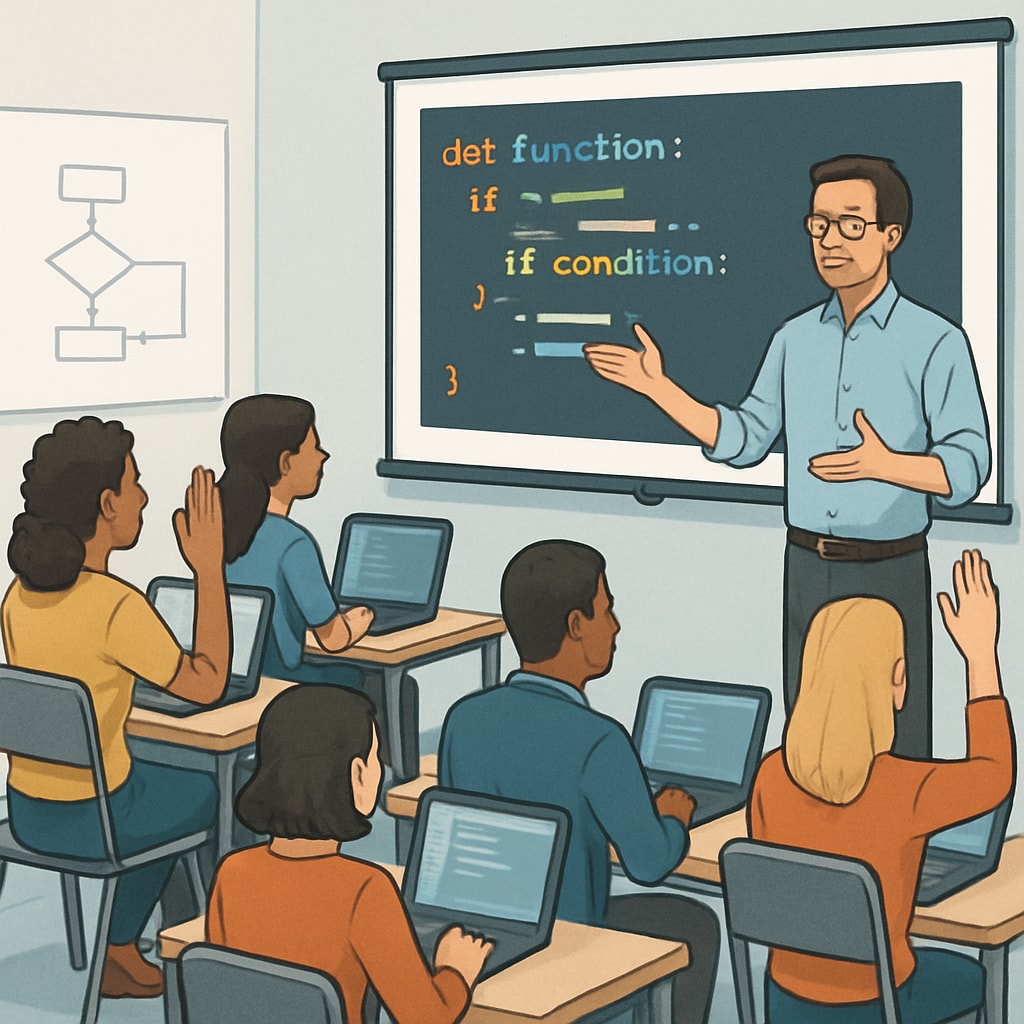Formal education, age, and programming are interconnected concepts that highlight the evolving nature of learning. Education is a lifelong journey, and for adults who may not have had the chance to pursue formal schooling earlier in life, entering the world of structured learning later is not only feasible but can also be incredibly rewarding. Adults starting formal education bring a wealth of life experience and practical skills that can serve as significant advantages. This article explores the necessity of formal education for adults, its feasibility, and the strategies to successfully embark on this transformative journey.
The Value of Formal Education for Adults
Formal education provides structured knowledge and recognized qualifications, which are essential for career advancement, personal growth, and societal contribution. For adults, the benefits extend beyond the classroom. Their past experiences—whether from the workplace, family life, or previous informal learning—can enrich their educational pursuits. Furthermore, in rapidly evolving fields like programming and technology, formal education can help adults stay competitive and meet the demands of the modern job market.
For example, an adult learning programming might already possess problem-solving skills or project management experience, which can complement their technical education. Formal education can thus enhance these existing abilities while providing new tools for success.

Is It Feasible to Pursue Formal Education as an Adult?
Absolutely. Thanks to flexible learning options, pursuing formal education as an adult is more accessible today than ever. Many institutions now offer evening classes, online courses, and part-time programs tailored to meet the needs of working professionals, caregivers, or those with other commitments.
Moreover, there are scholarships, grants, and financial aid options specifically targeted at adult learners. Governments and organizations recognize the importance of lifelong learning and actively support initiatives to make education feasible for all. Adults can also leverage their existing skills to fast-track their learning process, such as focusing on areas that align with their career goals or personal interests.

Strategies for Adults to Begin Their Education Journey
To successfully transition into formal education, adults should consider the following strategies:
- Assess Your Goals: Identify why you want to pursue education—whether it’s for career advancement, personal growth, or acquiring new skills.
- Explore Flexible Programs: Look for institutions offering programs that fit your schedule, such as online courses or evening classes.
- Leverage Previous Experience: Use your past work experience or informal learning as a foundation to excel in your chosen field.
- Seek Financial Assistance: Research scholarships, grants, and financial aid dedicated to adult learners.
- Build a Support System: Surround yourself with friends, family, or mentors who can encourage and assist you throughout your journey.
Additionally, fields like programming offer excellent starting points for adult learners, as they often have clear, skill-based paths and high demand in the job market. Platforms like Coursera and edX provide beginner-friendly programming courses that can be completed at your own pace.
Overcoming Challenges in Adult Education
While the journey is rewarding, adults may face challenges such as balancing education with work and family responsibilities. Time management and self-discipline become crucial. Setting realistic goals, creating a study schedule, and using technology to streamline learning can help alleviate these challenges.
Another common obstacle is self-doubt. Many adults worry about fitting in with younger students or fear that their learning capabilities have diminished. However, studies show that adult learners often excel due to their intrinsic motivation and focused approach.
As a result, enrolling in programs specifically designed for adult learners can mitigate these concerns and create a more supportive environment for success.
Conclusion: Why Education Has No Age Limit
Formal education, regardless of age, is an opportunity to grow, adapt, and thrive. Adults entering education bring unique advantages, such as life experience, motivation, and practical skills, that can enrich their learning journey. Whether pursuing programming, liberal arts, or any other field, education opens doors to new opportunities and empowers individuals to achieve their goals.
So, if you’ve been contemplating formal education as an adult, take the leap—it’s never too late to learn.
Readability guidance: Use short paragraphs to maintain engagement. Incorporate lists to summarize key points. Ensure smooth transitions with words like “however,” “therefore,” and “in addition.” Keep long sentences and passive voice to a minimum for clarity.


